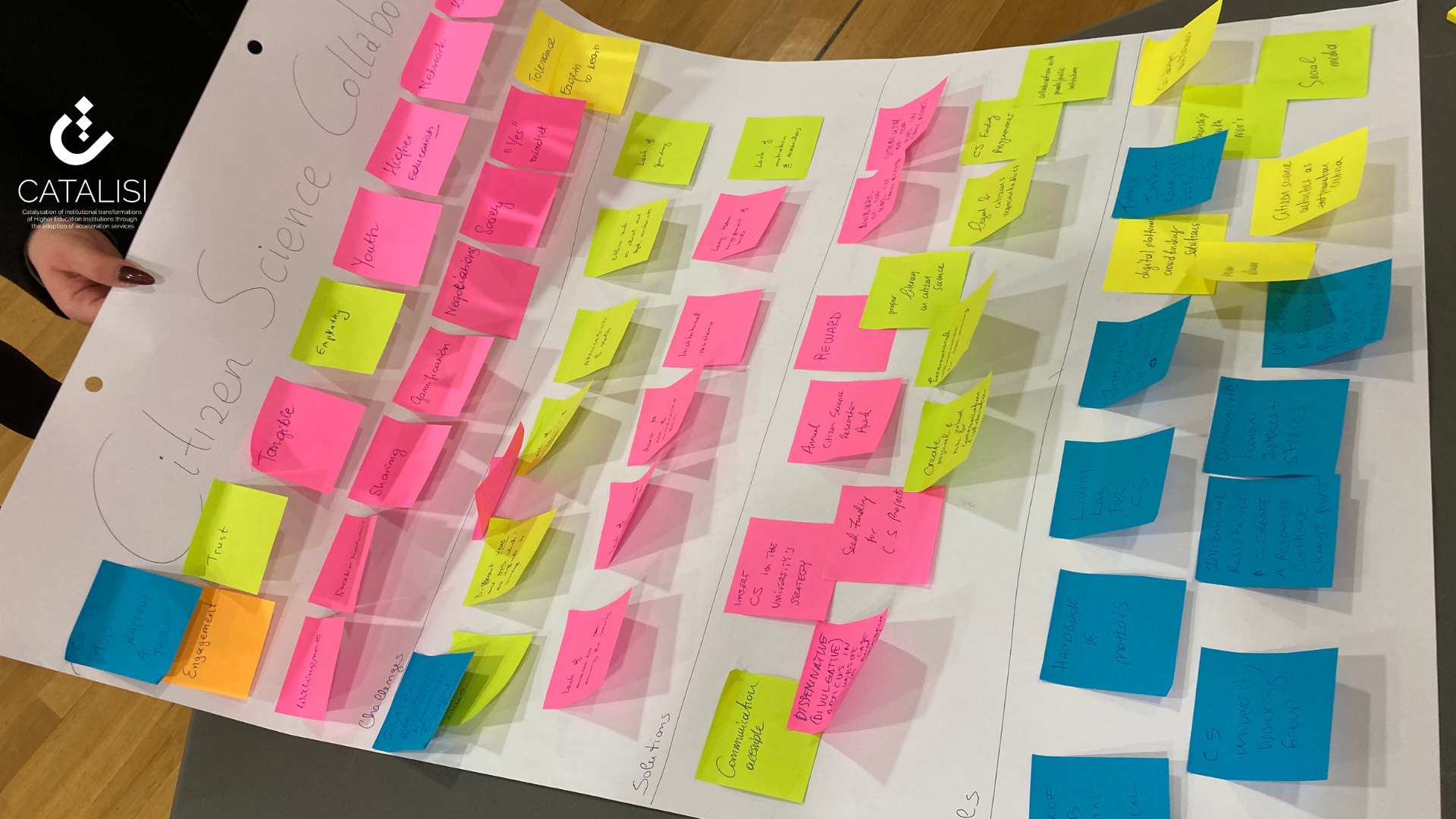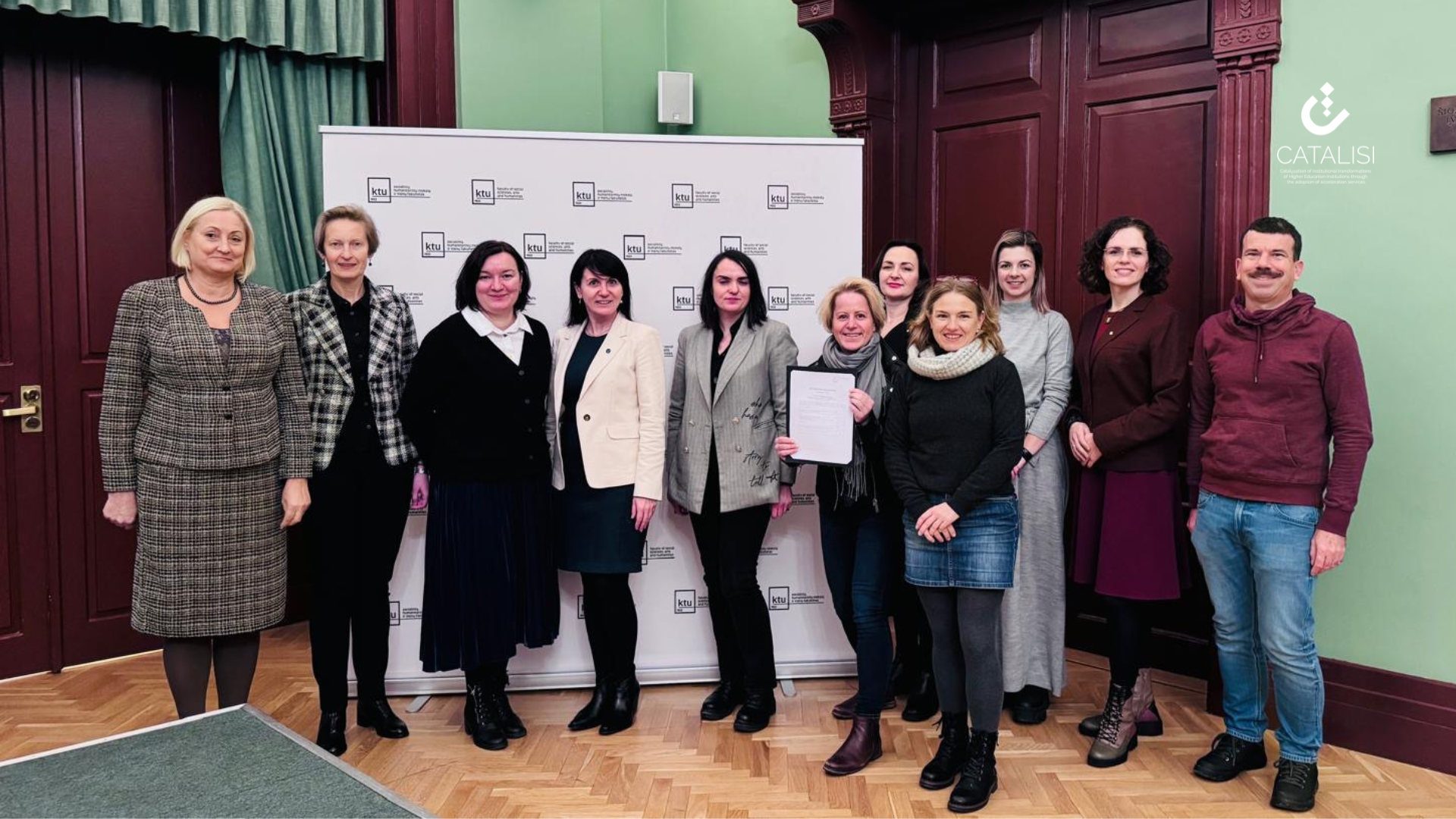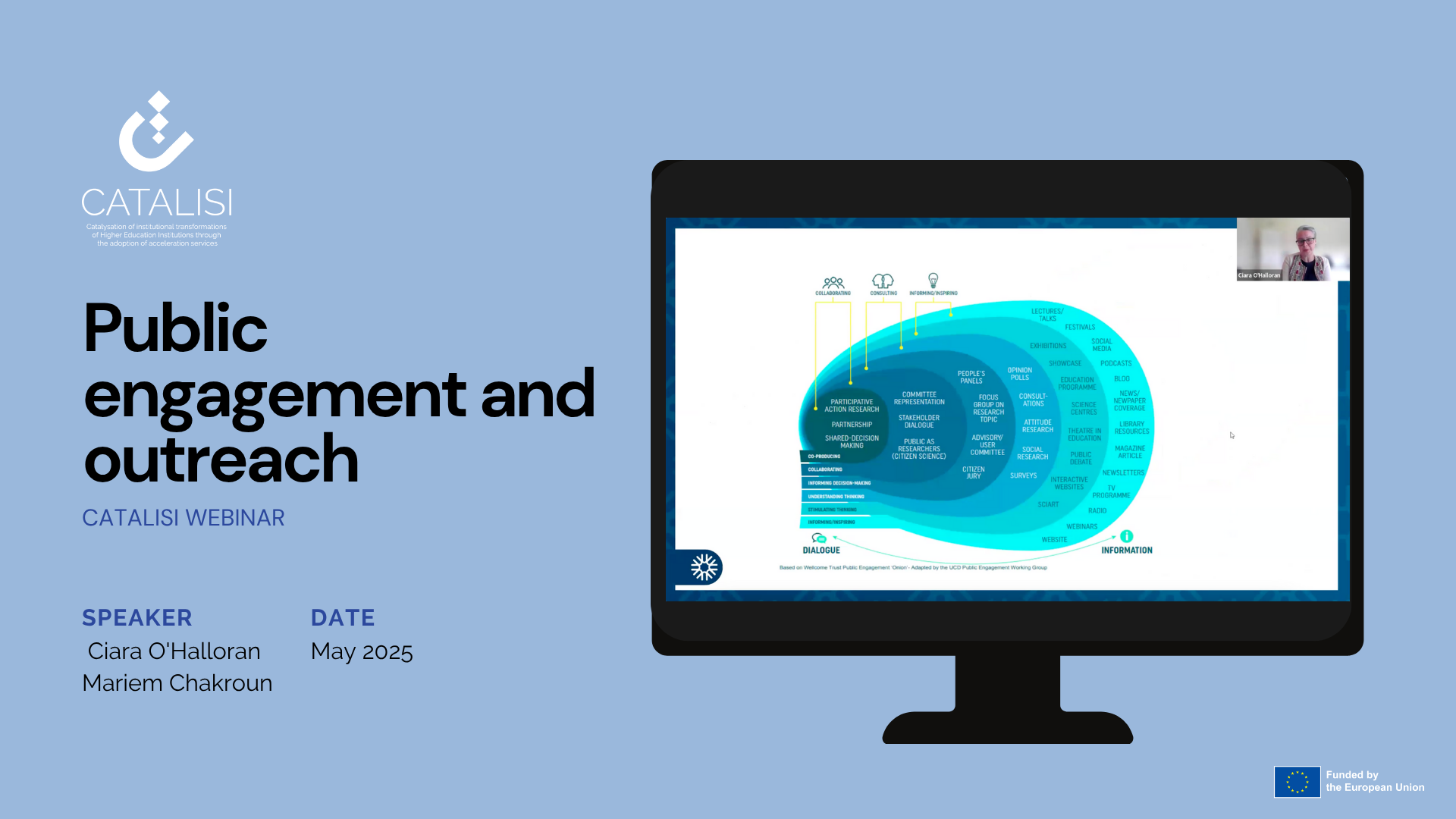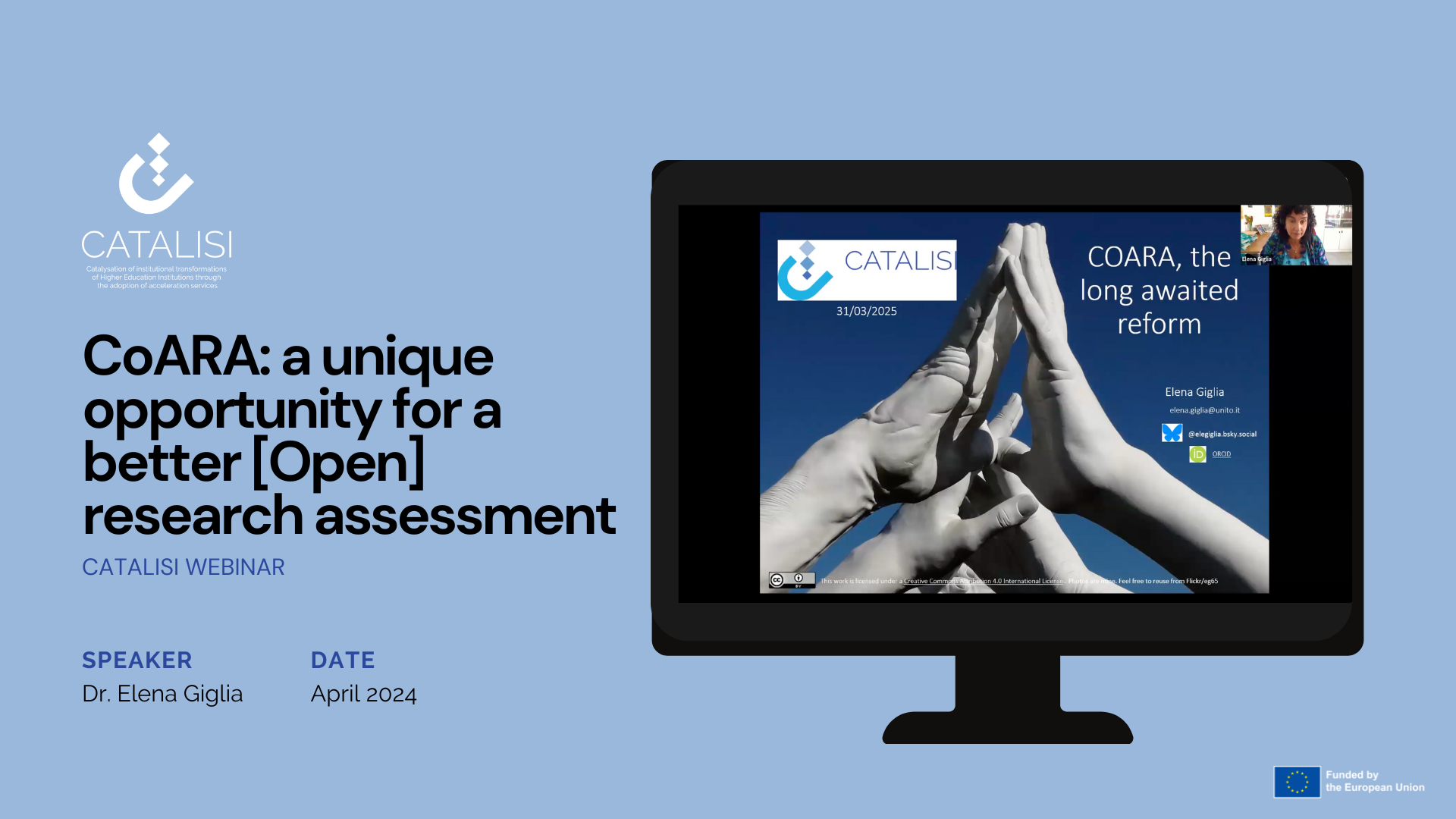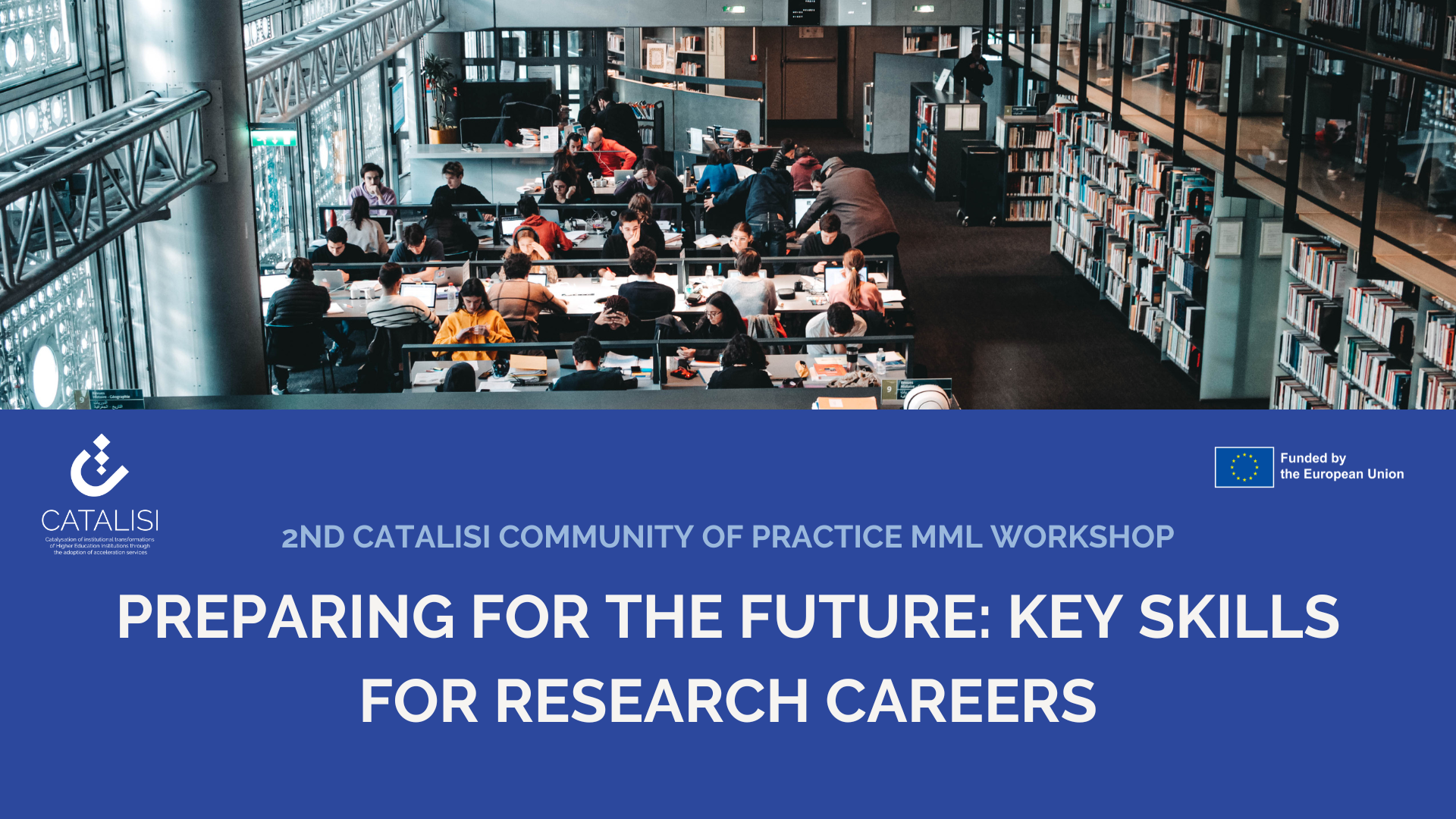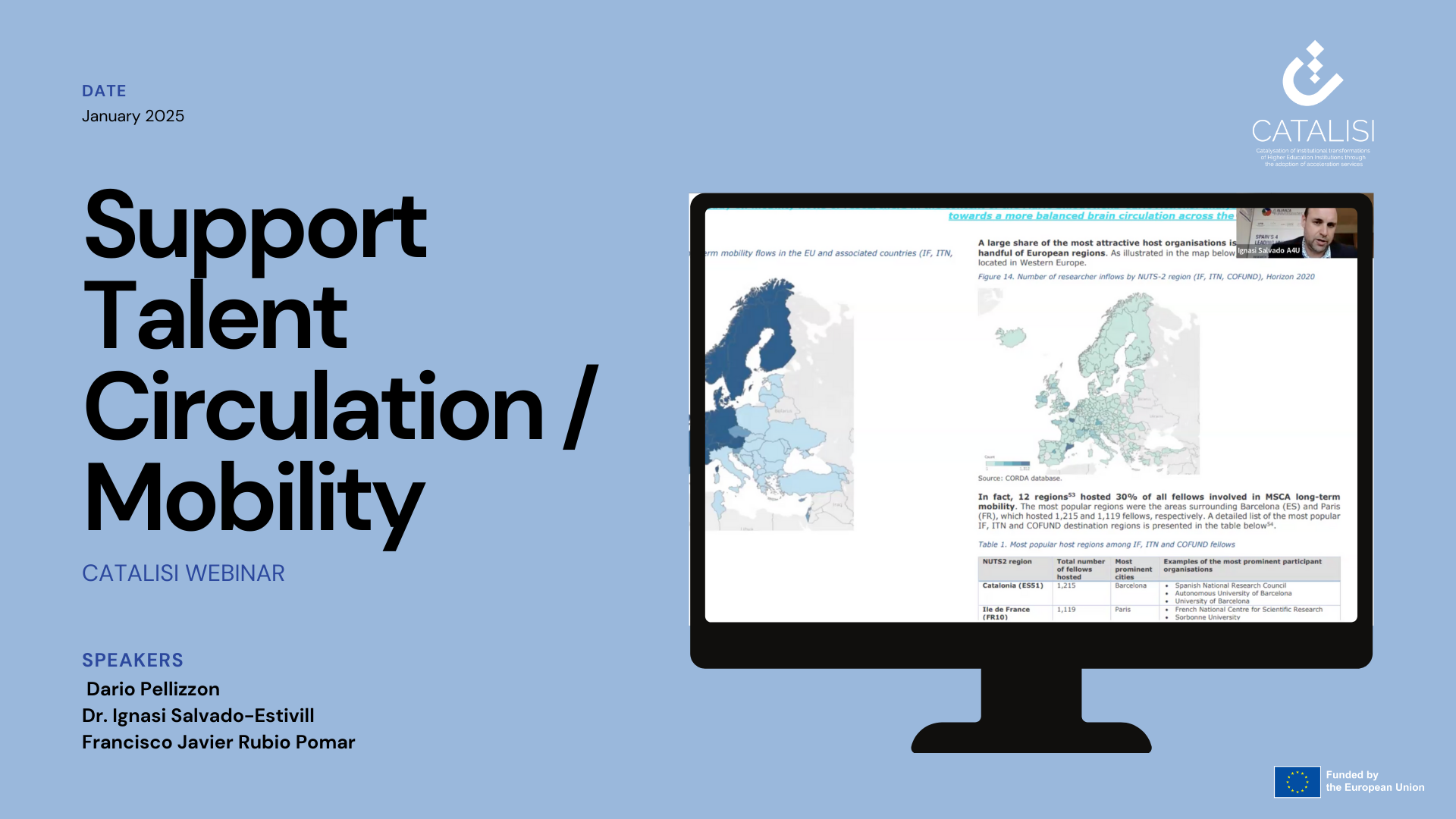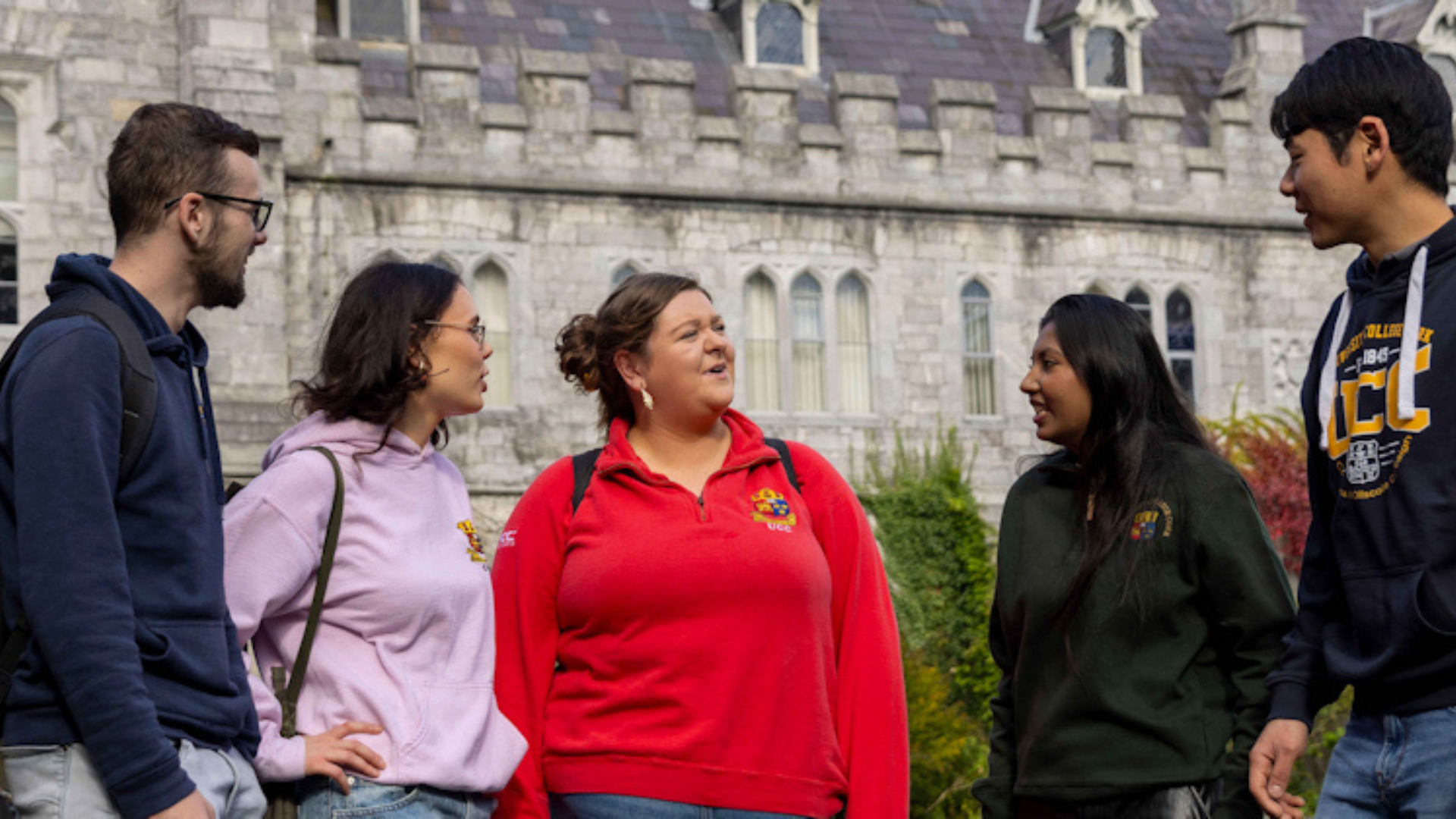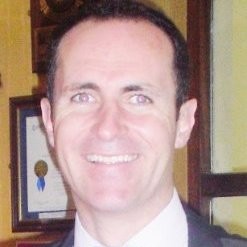On 22nd and 23rd January 2025, the Aristotle University of Thessaloniki (AUTH) hosted a two day Twinning & Mobilisation and Mutual Learning (MML) Exchange as part of the CATALISI project. This gathering brought together partner institutions including University College Cork (UCC), University of Gdansk (UG), Kaunas University of Technology, Universitat Jaume I | Luiss Guido Carli University, and Amsterdam UMC alongside internal and external stakeholders who have been actively engaging with AUTH’s CATALISI journey.
MML Workshop: Integrating Open Citizen Science in Universities
The first day focused on an interactive MML workshops aim to foster knowledge sharing among representatives from different universities. The AUTH team hosted a workshop with the title: Integrating Open Citizen Science in Universities: Building Stakeholder Engagement and Living Lab Ecosystems. They see Open Science and Citizen Science as crucial principles for driving institutional transformation, emphasising stakeholder engagement, transparency, and societal impact through Living Labs and citizen-driven initiatives.
Main Takeaways:
- Explored the effective integration of Open Science and Citizen Science principles into higher education institutions.
- Discussed current challenges and future opportunities for incorporating Open and Citizen Science within university systems.
- Highlighted the importance of institutional structures that enable openness, collaboration, and broader engagement with society.
- Engaged participants in co-creation activities to develop actionable strategies for integrating Open and Citizen Science into AUTH’s ecosystem.
The final session featured a showcase by Thess-AHALL, the university’s Living Lab, showcasing how researchers and community members can collaborate on real-world settings to address health challenges through co-creation processes.
Following the hands-on MML workshop, the Twinning session continued the momentum by diving into comparative learning and peer exchange.
"Twinning Session: Sharing Best Practices for Research Sustainability"
The second day shifted focus toward peer exchange and strategic dialogue between CATALISI partners through the Twinning framework. This format allowed universities to share national experiences and jointly explore pathways to institutional transformation.
Highlights from the Twinning Event:
- Dialogue sessions addressed sustainable research funding and alternative financing models, placing special emphasis on how Open Science practices can be supported long-term.
- AUTH provided an overview of the Greek research funding landscape, while UCC and UG shared insights into their national research funding policies.
- Case studies highlighted AUTH’s successful project implementations, particularly concerning Living Lab experiences in the medical field.
- Interactive sessions fostered a collaborative atmosphere where participants shared challenges in securing and managing funding and proposed practical solutions.
- Potential collaborations emerged, including exploring further contact between UCC and UG to pursue avenues discussed during the exchange.
Transforming Higher Education Institutions with CATALISI
These events are organised in the context of the CATALISI Capacity Building and Outreach Acceleration service and are designed to support HEIs with the skills and strategies needed to develop transformative approaches aligned with Responsible Research and Innovation (RRI) principles.
Both the MML Workshop and the Twinning Exchange were successful events. They will contribute positively to AUTH’s journey.

